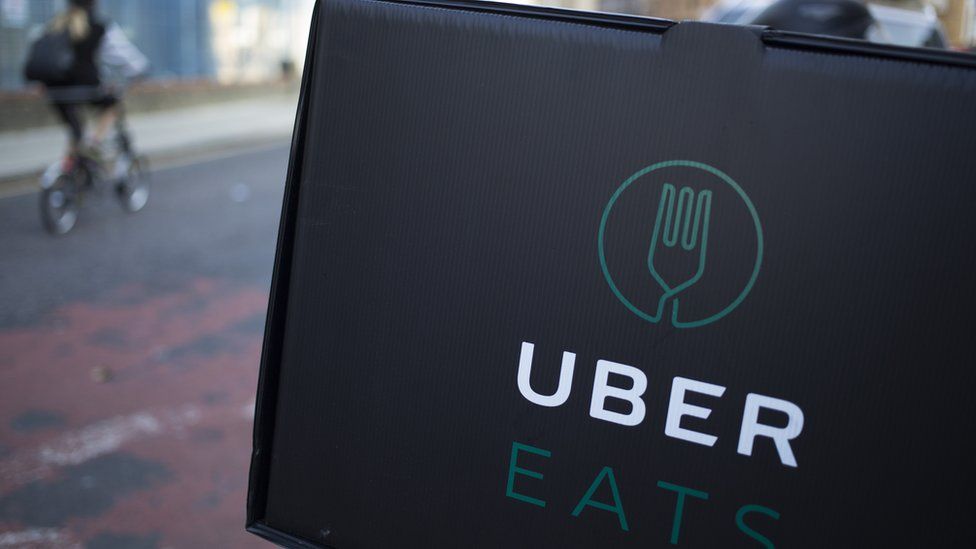
Gig economy workforce has tripled in last five years
The number of people working for gig economy platforms has nearly tripled in England and Wales over the past five years, according to new research published by the TUC.
The research – carried out by the University of Hertfordshire with fieldwork and data collection by BritainThinks – shows that three in 20 (14.7%) working adults surveyed now work via gig economy platforms at least once a week, compared to around one in 20 (5.8%) in 2016 and just over two in 20 (11.8%) in 2019.
That amounts to 4.4 million people in England and Wales working for gig economy platforms at least once a week.
In addition, almost a quarter (22.6%) of workers have done platform work at some point, up from one in ten (11.5%) in 2016. The term ‘platform work’ covers a wide range of gig economy jobs that are found via a ‘platform’ (a website or app) – like Uber, Handy, Deliveroo, Gorillas or Upwork – and accessed using a laptop, smartphone or other internet-connected device. Tasks include taxi driving, deliveries, office work, design, software development, cleaning and household repairs.
The overwhelming majority of workers use platform work to supplement other forms of income, reflecting that gig workers are increasingly likely to patch together a living from multiple different sources. This can lead to exceptionally long working days.
Over the last few years there has been considerable blurring of the lines between different types of employment status, and the definition of 'employee' and 'worker' differs slightly from one area of legislation to another.
Spiralling gig economy
The growth of the ‘gig economy’ – made up of short-term contracts and flexible working as opposed to long-term contracts – has only added to the confusion. Employment Tribunals sometimes agree that workers are employees, and therefore entitled to benefits, and vice versa. The gig economy has expanded further into the world of work, with an increase found across all types of platform work – a trend that has continued through the pandemic.
Over the past five years, the proportion of the working population carrying out platform work at least once a week has:
- More than quadrupled in delivery/driving (from 1.9% in 2016, to 6.1% in 2019, rising to 8.9% in 2021).
- More than doubled in household services (from 3.2% in 2016 to 6.5% in 2019 to 7.9% in 2021).
- Almost tripled in errand running (from 2.3% in 2016 to 3.8% and to 6.2% in 2021).
- More than doubled in remote online digital tasks (from 4.9% in 2016 to 9.6% in 2019 to 11.9% in 2021).
The union body warns that this “spiralling” gig economy will lead to more workers on low pay and experiencing poor conditions.
According to the TUC, gig workers face a two-fold challenge. Often their bosses falsely claim they are self-employed with no rights, including no right to trade union recognition. Those who can prove they are workers still usually end up with far fewer rights than conventional employees. Many miss out on basic rights like the National Minimum Wage, paid holidays or sick pay.
Oxford University’s Fairwork recently published research that showed that household names in the gig economy, such as Amazon’s delivery arm Amazon Flex, are failing to meet the most basic requirements on workers’ pay and rights.
Black and minority ethnic workers are overrepresented compared to white workers in the gig economy, according to recent research. The TUC says that boosting gig workers’ rights is therefore vital to tackling the structural racism that holds back BME workers in the labour market.
Despite its rapid expansion, the power of the gig economy has taken a hit thanks to union organising, according to the TUC. The union body points to the Supreme Court ruling from February this year that said Uber drivers are workers – not self-employed – and are therefore entitled to basic rights they had been denied.
Time for change
The TUC says the Government must stop letting gig economy platforms off the hook – and is calling for workers to have greater trade union and individual rights including:
- A New Zealand-style right of access to workplaces for unions, including a digital right of access, to enable them to talk to workers about what membership can offer them.
- A new ‘worker’ definition that covers all existing employees and workers and gives them the full range of legal rights.
- A ban on zero hours contracts, by giving workers the rights to a contract reflecting their normal hours of work and adequate notice of shifts.
TUC General Secretary, Frances O’Grady. said:
“Everyone deserves to be treated fairly at work. But millions of working people are having to rely on casual and insecure gig economy work to make ends meet – often on top of other jobs. Gig economy platforms are using new technologies to carry out the age-old practice of worker exploitation. Too often gig workers are denied their rights and are treated like disposable labour. The Supreme Court Uber judgment earlier this year was just the beginning. Unions won’t rest until pay and conditions have improved for gig workers. It’s time for change. Ministers must stop letting gig economy platforms off the hook. That means giving all gig workers trade union access, banning zero hours contracts and boosting workers’ rights across the board.”
Professor Neil Spencer, Head of the Statistical Services Consulting Unit at the University of Hertfordshire, says that:
“Our research shows that the gig economy is a substantial part of the UK’s workforce and I expect it to continue to grow. ‘Gig’ work can offer flexibility, but many workers also experience lower pay and poor working conditions. Those classified as self-employed also have less rights than employees. It is vital that pay and conditions for gig workers are improved to protect those who rely on this work as a source of income.”
Co-author Ursula Huws, Director of Analytica Social and Economic Research, adds:
“The growth of platform work has to be seen in the context of growing time poverty in the British workforce. People are having to take on extra work to make ends meet, but that leaves them with little time for their household and care responsibilities, forcing them to turn to platforms to supply these needs.”







